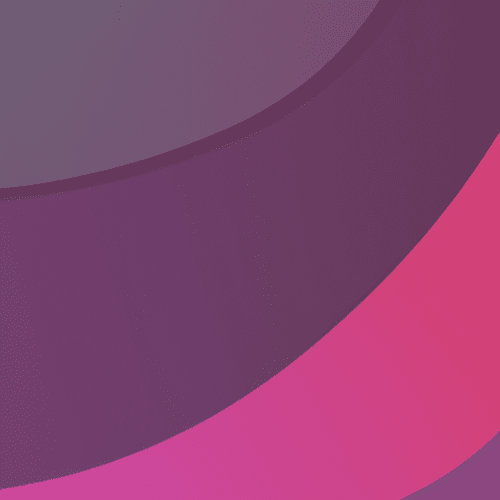
In a country as linguistically diverse as India, effective communication is a cornerstone of quality healthcare. With more than 1.4 billion people and hundreds of languages spoken across its vast landscape, providing equitable medical services poses significant challenges. This complexity places a spotlight on the growing relevance of medical translation services. As the global healthcare landscape continues to expand and digital healthcare solutions become more prevalent, the need for precise and reliable health care translation is more crucial than ever.
Medical translation services play a vital role not just in bridging language barriers, but in ensuring that every Indian—regardless of their mother tongue—has access to accurate medical information, diagnosis, care, and consent procedures. In this blog post, we delve into how medical translation services are driving transformational impact in India's healthcare system, supported by current research, real-life examples, and expert insights.
The Role of Medical Translation Services in India's Healthcare
India’s healthcare system is renowned for both its scope and complexity. With over 22 official languages and thousands of dialects, communication gaps between healthcare professionals and patients can lead to misdiagnosis, medication errors, and poor patient outcomes. This is where specialized health care translation come into play, ensuring that vital medical information—ranging from patient histories to consent forms and drug instructions—is accurately translated and understood.
Enhancing Patient Safety and Quality of Care
According to research published in the Indian Journal of Medical Ethics, language barriers are a key contributor to clinical errors and adverse patient experiences. In the high-stakes context of healthcare, a misinterpreted word or phrase can result in the wrong diagnosis, inappropriate treatment, or even life-threatening mistakes.
By utilizing professional health care translation, hospitals and clinics can:
- Accurately transmit medical histories and symptoms, no matter the patient’s language.
- Ensure correct dosage and administration of medicines through well-translated prescriptions and labels.
- Provide culturally relevant health education and preventive care resources to remote populations.
Improving Access to Healthcare in Rural and Underserved Areas
More than 65% of India’s population lives in rural areas, where access to quality healthcare is often limited and language barriers are most pronounced. Many villagers speak only local dialects and may not fully comprehend official languages like Hindi or English. This gap can discourage people from seeking medical care or lead to misunderstandings about their rights and treatment options.
With the help of health care translation, NGO workers and healthcare professionals are now better equipped to disseminate critical information. Whether it’s raising awareness about vaccination drives or educating expectant mothers about prenatal care, translated materials are saving lives and fostering healthier communities.
The Digital Health Revolution and Multilingual Communication
The rise of telemedicine and digital healthcare apps has greatly expanded healthcare access in India—but also introduced new communication challenges. Apps must function in multiple languages and provide accurate, real-time information to users from different linguistic backgrounds. Moreover, online medical consultations depend on the proper understanding of symptoms, diagnosis, and treatment plans.
Medical translation services ensure that:
- Patient-owned smartphone apps deliver clear instructions and notifications in the user’s native language.
- Digital health records are translated and shared accurately across regions and states.
- Remote consultations do not compromise on patient understanding or safety due to language differences.
Boosting India's Position in Medical Tourism
India is a global hub for medical tourism, attracting thousands of patients every year who seek affordable and high-quality care. For international patients, medical translation services are indispensable, providing translated discharge summaries, medical reports, consent forms, and follow-up instructions in their home languages.
Not only does this bolster patient trust and satisfaction, but it enhances India’s reputation as a world-class destination for healthcare, making the industry even more competitive on the global stage.
Supporting Clinical Research and Pharmaceutical Development
With numerous multinational clinical trials and pharmaceutical collaborations underway, the scientific advancement of India’s healthcare sector relies heavily on the accurate translation of technical documents, regulatory filings, and research papers. Bidirectional translation is vital—not just to comply with local guidelines but also to contribute Indian innovations to the global medical community.
Quality health care translation services also enable Indian pharmaceutical companies to export their products and meet international regulatory requirements by providing documentation in various languages.
The Future of Inclusive Healthcare in India
As India strives to provide inclusive, patient-centered healthcare for its diverse population, the role of medical translation services will only grow in importance. Bridging linguistic divides is no longer a luxury—it is a necessity for delivering equitable and efficient healthcare outcomes. From improving individual patient safety to supporting nationwide health initiatives and international collaborations, these services are strengthening the foundation of Indian healthcare.
Investing in high-quality, specialized health care translation is not just a strategic business decision for hospitals, NGOs, and pharmaceutical companies; it is a humanitarian imperative. By making reliable medical information universally accessible, India moves closer to the global goal of health for all, regardless of language or literacy.
For stakeholders in the healthcare sector, choosing experienced language professionals can make all the difference. Explore how your organization can benefit from expert medical translation services and help pave the way toward a healthier, more connected nation.
Stay tuned for more updates and in-depth analysis on healthcare innovations and policy changes from India, right here on your trusted English-language news platform!








